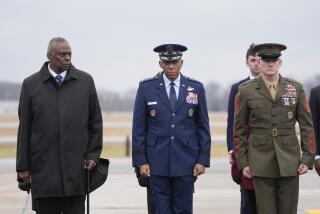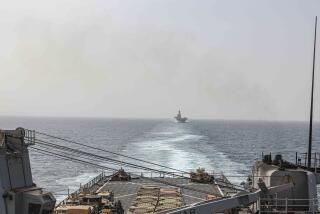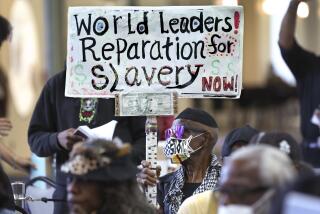The Day in the Gulf
- Share via
POSTWAR REBUILDING: Secretary of State James A. Baker III said the United States and its allies might help rebuild postwar Iraq and that most of the resources for reconstruction will come from Gulf countries. But when pressed by members of Congress, he said reparations might be exacted if Iraq fights to the finish in a bloody ground war.
BAGHDAD CUTS TIES: Iraq announced that it is severing diplomatic relations with the six leading members of the multinational coalition--the United States, Britain, France, Italy, Egypt and Saudi Arabia. Warplanes from all except Egypt have attacked Iraq. Egypt has 35,000 troops in Saudi Arabia--the largest Arab force in the coalition.
FLEEING JETS DOWNED: The United States ambushed four Iraqi warplanes trying to escape to Iran and shot down at least two. Military officials said that about 120 Iraqi planes now have taken refuge in Iran, which has said it will keep them until the war is over.
CIVILIAN TOLL: Iraq said an allied raid on the city of Nassariyah killed about 150 civilians, including 35 children, the highest reported toll in a single raid. Baghdad promised an escalation in terrorist attacks against Western targets.
KING FAVORS IRAQ: Jordan’s King Hussein tilted sharply toward Iraq, describing the Persian Gulf War as an effort by outsiders to destroy that country and carve up the Arab world. He called on Arabs and Muslims to “make the alliance accept a cease-fire.”
GASOLINE USE DROPS: High fuel costs resulting from the Gulf crisis have cut gasoline purchases, the American Automobile Assn. said. For the first time in seven years, gasoline deliveries to service stations fell 1.7% in 1990 from 1989, mainly because of a 3% drop in the last three months.
More to Read
Sign up for Essential California
The most important California stories and recommendations in your inbox every morning.
You may occasionally receive promotional content from the Los Angeles Times.










